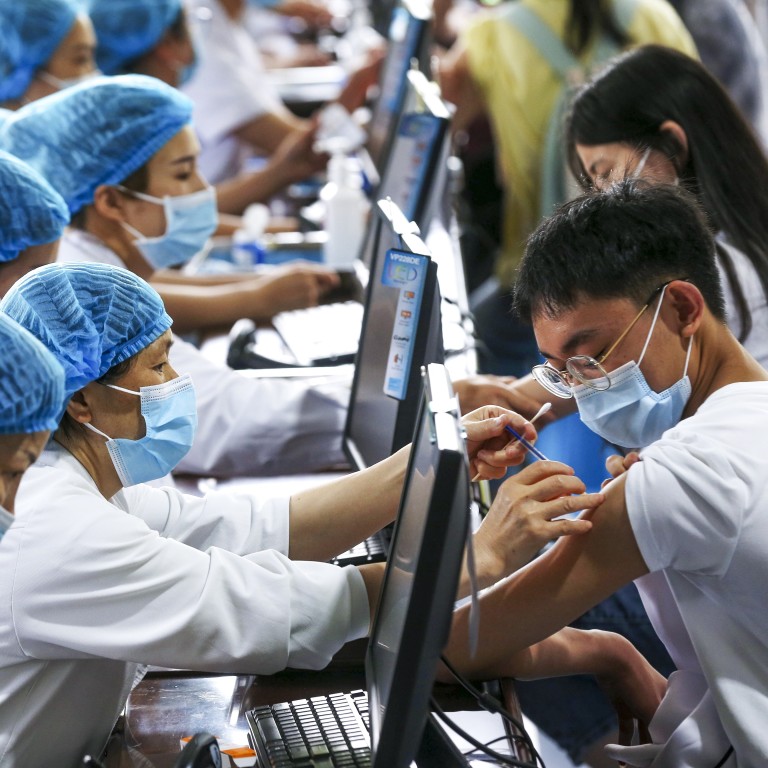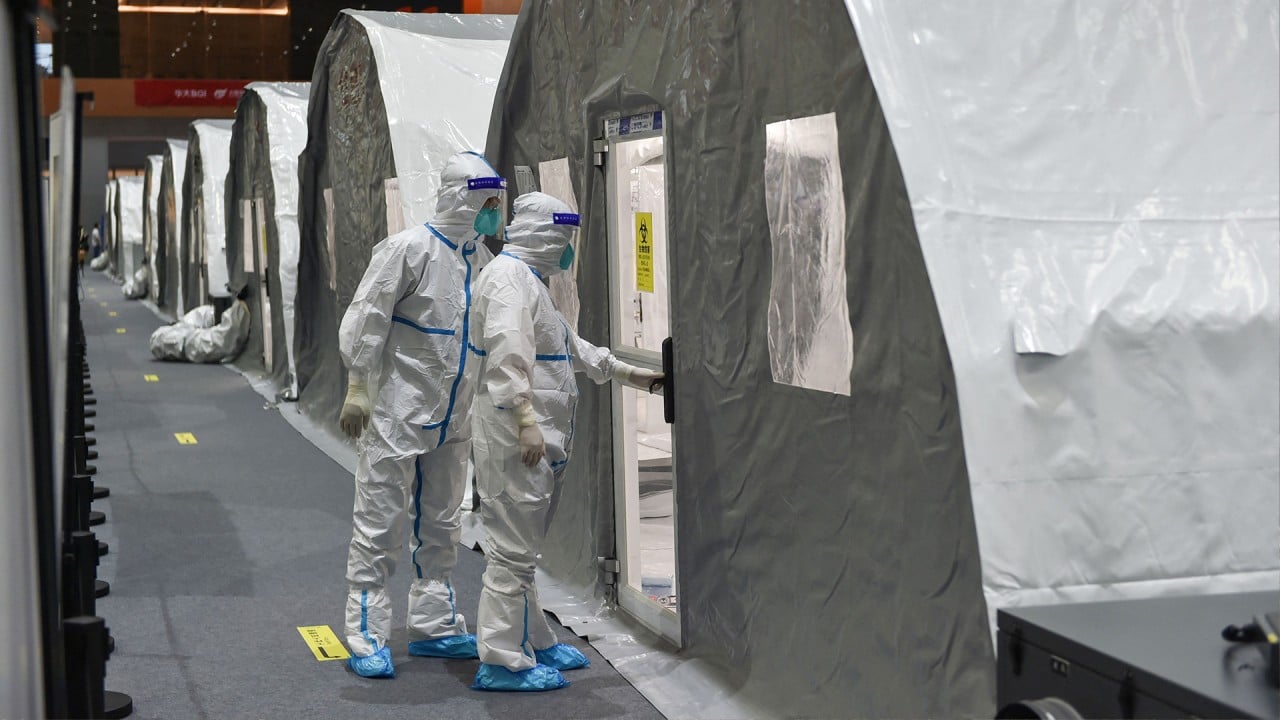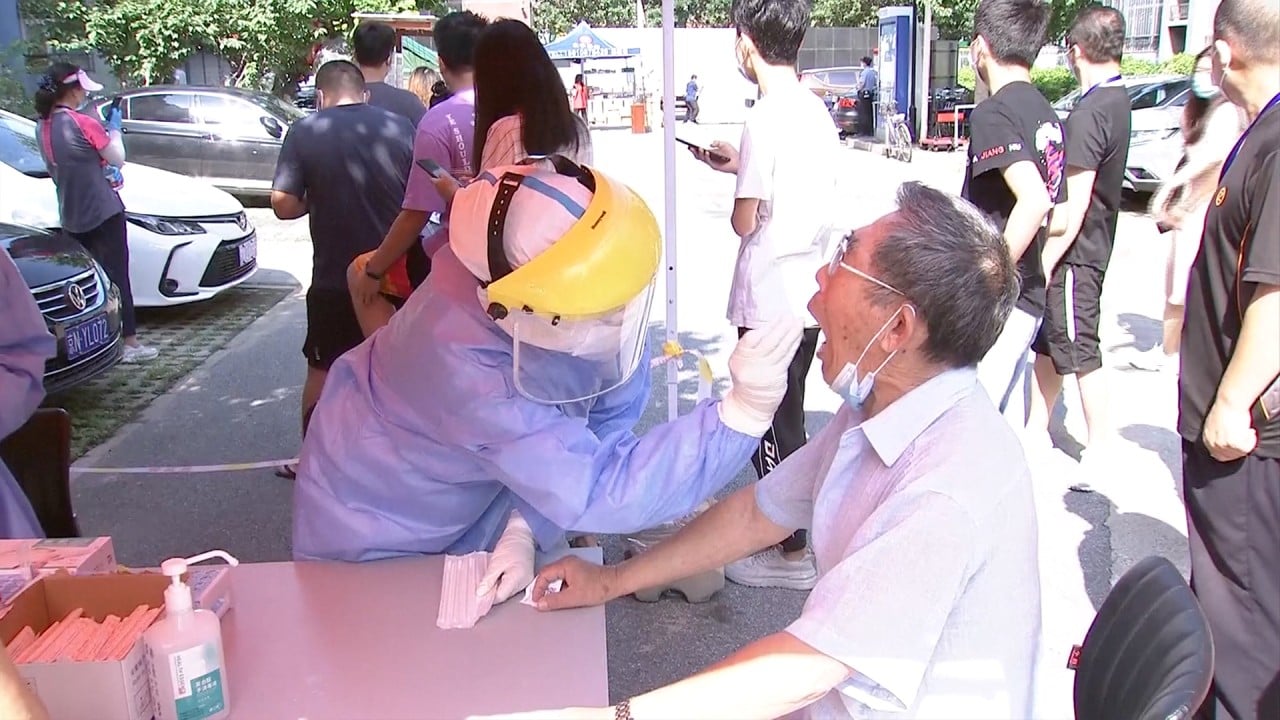
Coronavirus: China vaccinates two-thirds of population in Covid-19 herd immunity race
- With more than 2 billion doses administered, 67 per cent of the country’s people are fully vaccinated, according to disease control bureau
- Precautions being taken to update shots to cover potential threats from new variants, senior public health official says
The National Health Commission’s disease control bureau said that by Monday, 960 million people, or 67 per cent of the population, had completed their doses.
In all, 2.11 billion doses had been administered, meaning 1.09 billion people, or 77.6 per cent of the population, had been given at least one shot, according to Wu Liangyou, the bureau’s deputy head.
“Overall vaccination of 12-17 year-olds is also progressing quite well, with 162.28 million doses administered so far,” Wu said on Tuesday.

02:37
China under pressure as Nanjing airport coronavirus cluster spreads to 15 cities
While China is on track to reach that target, variants of the coronavirus could pose a threat and vaccine developers around the world are looking to update their formulas from the original ancestral strain.
Zheng Zhongwei, director of the NHC’s Development Centre for Medical Science and Technology, said precautions were being taken in China to update vaccines for variants even though mutations in the coronavirus had so far been relatively stable and existing vaccines were effective against all variants.
While the global prevalence of Mu among sequenced Covid-19 cases is below 0.1 per cent, its prevalence has consistently increased in Ecuador and Colombia, where it was first detected in January. Mu has a number of mutations that suggest it could be more resistant to vaccines, but the WHO said further research would be needed to confirm it.

03:18
Mass Covid-19 testing under way across China amid rising infections fuelled by Delta variant
Some inactivated vaccine developers have carried out research on vaccines for the Gamma and Delta variants and completed preclinical studies.
The developers have applied for clinical trials with the Centre for Drug Evaluation, according to Zheng.
China has approved three inactivated vaccines for general use with conditions and two others for emergency use.
Some developers of recombinant protein-based vaccines have designed broad-spectrum or polyvalent vaccines against different variants, with some in rolling application for clinical trials.
Developers of adenovirus-vectored vaccines and mRNA-platformed vaccines were also working on jabs against Beta and Delta variants and had completed animal efficacy and safety experiments, Zheng added.
“With such preparations, even if a serious mutation of the virus occurs in the future and completely escapes the preventive effects of the vaccine that are in production, we will be able to quickly develop and produce new vaccines on a large scale,” he said. “We are well prepared.”
Zheng said inactivated vaccines, the most commonly used ones in China, still worked well on the Delta variant, with real world data showing they could prevent infection to a certain degree, achieve a clear effect on blocking transmission after infection and have a significant effect on preventing severe illness and death, even “when variants, especially the Delta variant, are prevalent”.

